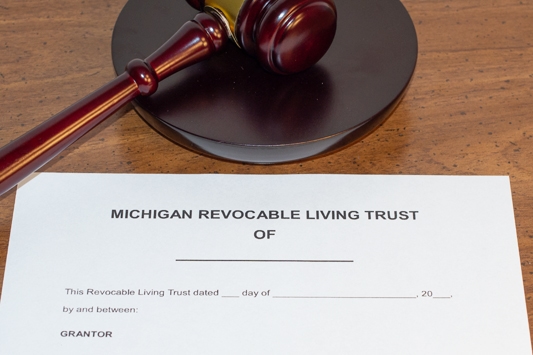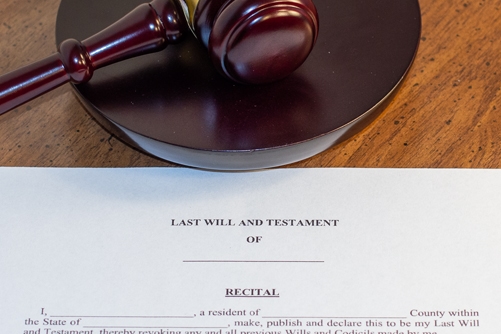Probate & Estate Litigation in Michigan
Estate litigation is a specialized area of law that involves legal disputes over a deceased individual’s assets/inheritance.
These legal issues often stem from trustee misconduct, removal of beneficiaries, or other problems involving the probate of an estate.
Sean J Nichols, PLLC specializes in Michigan estate litigation cases. We have the knowledge, dedication, and experience to represent you during these complex and emotional disputes.
We specialize in many aspects of estate litigation including:
Estate Litigation Involving Trusts
In Michigan, Trustee’s have specific duties and liabilities under the Michigan Trust Code. These duties and liabilities include:
- Impartiality between beneficiaries
- Administration of the trust for the benefit of beneficiaries
- The duty to carefully administer the trust in accordance with the written terms
- The duty to keep beneficiaries informed

Basically, trustee’s are responsible for handling the trust in accordance with terms written within the document. Furthermore, they’re responsible for keeping detailed accountings and reports of the assets within the trust. Finally, they’re responsible for handling the trust in an honest way that doesn’t show impartiality or self-serving for their own personal gain.
When a Trustee violates these duties, this is commonly referred to as Breach of Fiduciary Duty. In these cases, a trust may be contested and enter into litigation.
At Sean J Nichols, PLLC we handle various types of estate litigation cases involving trust disputes. These include:
- Breach of fiduciary duty
- Removal of beneficiaries
- Defending trustee’s against claims
- Undue influence and misrepresentation
- Lack of testamentary capacity
- Issues with accounting and reporting
- Issues with formalities (i.e. if the trust was improperly signed of executed)
- Disputes among beneficiaries
- Removal of trustees
Estate Litigation Involving Wills
When someone passes away in Michigan, the will dictates who should receive assets and inheritance of the deceased individual. Unfortunately, this isn’t always cut and dry and in some cases, a dispute may be filed against the will itself or the process with how the will is administered.
Examples of Michigan estate litigation cases involving contested wills include:
 Issues with formalities (i.e. the will was improperly witnessed, signed, or executed)
Issues with formalities (i.e. the will was improperly witnessed, signed, or executed)- Lack of testamentary capacity
- Removal of beneficiaries
- Removal of personal representatives
- Undue influence over the settlor
- Fraud or misrepresentation
- The will was signed or executed “under duress”
- Existence of a subsequent will
Common Questions
What is estate litigation?
Estate litigation is also commonly referred to as “probate litigation.” In short, this involves a legal dispute over the probate process. In other words, an estate litigation lawsuit is a formal legal objection over the way assets or inheritance is being handled or distributed from a deceased individual’s estate.
When can an estate be disputed?
Estates may be contested when an “interested party” has a formal legal objection over the way the estate is being administered.
Interested parties may include: beneficiaries of the estate, beneficiaries who were unlawfully removed, creditors, relatives of the estate.
What if someone dies without a will or estate plan?
When someone dies without an estate plan dictating their final wishes, their property becomes intestate under Michigan law. This means property that is not exempt from probate goes to the closest family members of the deceased.
Michigan probate courts have a specific legal process in determining the closest family members. We explain this process in further detail in our article on Intestate Succession.
What is the difference between probate and estate litigation?
There’s a lot of overlap between these two practice areas; however, probate is a more broad term that encompass any legal matter related to assets of a deceased person. On the other hand, estate litigation is more specialized in that it deals with legal disputes over said assets.
Do I need a lawyer?
Yes, in cases where an estate is being contested in court, legal representation is required. These cases are often highly complex and emotion; thus, it’s advised to use an experienced probate an estate lawyer who specializes in litigation cases to ensure your legal rights are protected.
